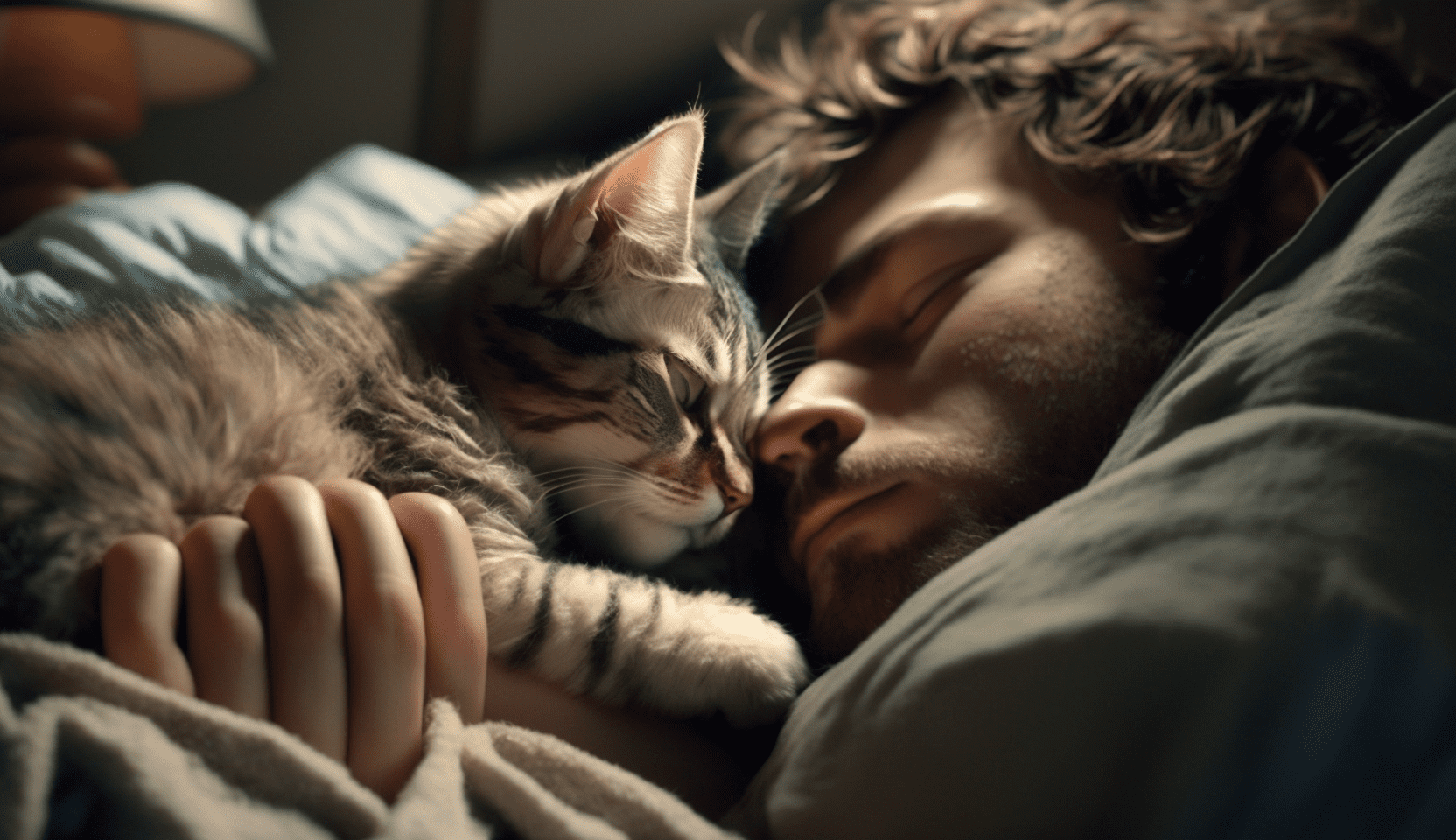Pets are considered to be man’s best friend, and many people love to have them around. It is a common sight to see people walking their dogs or playing with their cats so they can’t be independent even in their bed. However, being an owners of a pet can have a significant impact on the quality of your sleep. In this article, we will discuss how having a pet cat or dog might be ruining the quality of your sleep.
The Surprising Way Your Pet Could Be Sabotaging Your Sleep
Owning a pet can bring immense joy, positive energy and happiness to your life. It can also help to reduce stress and anxiety. However, pets can also cause a disorder to your sleep, especially if you share your bed with them. According to a survey conducted by the American Pet Products Association, the study shows that around 63% of American households have a pet, and a significant percentage of them having big interaction with their pets as sleeping .
How Pets Affect Your Sleep
Pets can affect your sleep in several ways. Here are some of the most common ways:
#1.Disruption of Sleep Cycle
Pets have their own sleep cycles, and they may not always coincide with your journal sleep. Dogs and cats tend to sleep for shorter periods throughout the day, and they may be more active at night, which can disrupt your sleep cycle. For instance, your dog might bark or whine during the night, or your cat might scratch your bed or meow loudly.
#2.Allergies and Asthma
Pets can also trigger allergies and asthma, which can make it difficult for you to breathe properly and get a good night’s sleep. Pet dander, saliva, and urine can cause allergic reactions, and if you are allergic to pets, you may experience sneezing, itching, and wheezing at night which can effects your health and cause many disorders.
#3.Pet Hair and Dirt
Pets shed hair and dirt, which can accumulate on your bedding and make it uncomfortable to sleep. Pet hair can also trigger allergies and cause breathing problems.
#4.Sharing Your Bed with Your Pet
Sharing your bed with your pet can be comforting, but it can also be disruptive to your sleep. Pets tend to move around during the night, which can disturb your sleep. They may also take up a lot of space, leaving you with poorer room to sleep.
Tips for Sleeping Better with Your Pet
If you cannot imagine sleeping without your furry friend, here are some tips that we suggests can help you sleep better with your pet:
#1.Establish Boundaries
Establish clear boundaries for your pet. You can train them to sleep in their own bed or a designated area in your room. This will help to reduce the risk of disruption to your sleep.
#2.Keep Your Bedroom Clean
A part of ownership is to clean your bedroom regularly to reduce the amount of pet hair and dirt in your sleeping area. Use a vacuum cleaner to remove pet hair from your bedding and carpets.
#3.Groom Your Pet Regularly
Groom your pet regularly to reduce shedding and keep their hair and skin clean. This will also help to reduce the risk of allergic reactions.
#4.Consider Using an Air Purifier
An air purifier can help to remove pet dander and other allergens from the air, which can improve the quality of your sleep.
#5.Get a Bigger Bed
If you have a smaller bed, consider upgrading to a bigger one to accommodate your pet. This will give you more space to sleep comfortably and reduce the risk of disruption to your sleep.
Owning a pet can bring immense joy and happiness to your life, but it can also make your sleep restless. Pets can disrupt your sleep cycle, trigger allergies, shed hair and dirt, and take up a lot of space in your bed. However, with a few adjustments, you can sleep better with your pet. Establish clear boundaries, keep your bedroom clean, groom your pet regularly, consider using an air purifier
